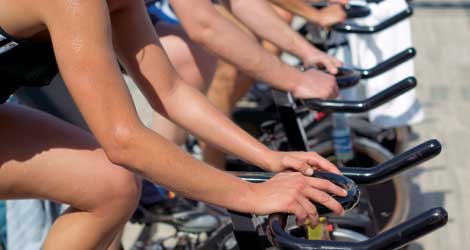5 mistakes to avoid in training this winter
It may not be race season, but that doesn’t mean there aren’t some serious mistakes you can make during this early season training that will impact you later on this year.


— By Michael Liberzon
Ah winter! With all the talk of polar vortices, bomb cyclones, and snowmageddons, it’s hard NOT to think of warmer weather and the race season that it heralds. Now that last season is well behind most of us, this is the time that most summer-sport endurance athletes think about the coming year and reboot their training programs in preparation. While it is true that there is a good deal of flexibility to training in this early phase, it still makes to set some guidelines. To that end, here are 5 common mistakes best avoided.
Not taking a break
We’re not advocating a cheeto-fueled-fortnight-long Netflix marathon by any means, but a reduction in the duration and intensity of training at this time of year is a smart move. That could mean complete rest from endurance training for a week or two or a substantial reduction in volume for longer still. Accomplished swim coach Gerry Rodrigues suggests switching from ‘training’ mode to ‘exercise’ mode. That is, no longer paying attention to all the metrics that follow us each day and simply enjoying swimming, biking, running, or other activities for the pure joy of the movement.
Skipping the retrospection
If you raced last year, you have a season’s worth of race and training data to analyze! That data contains loads of insights, including:
– Your strength in each discipline relative the rest of the field. That information can help direct your future training in – perhaps – increasing focus on the sports that are limiters.
– Correlations between training type / volume and race results. In other words, what sort of training worked last year and what type did not yield desired results
– On the qualitative side, recalling past events can guide your season race planning. Did you wilt in the heat? Then perhaps races that are historically hot are not your jam. Did you crush a hilly race? Then maybe another hilly challenge is the perfect venue for an ambitious age group result.
Failing to plan
Planning is not essential for racing, but it is essential for racing at your best. The start of a training macro cycle is the optimal time to work on goal setting. Remember to make them S.M.A.R.T. goals and focus on the process more than the outcome.
Assume no erosion from peak season fitness
Were you in peak bike fitness last summer? Crushing workouts and races alike? If you took more than a month off riding between then and now, it is not reasonable to assume that your level of fitness – like your Functional Threshold Power – has not dipped. It would be a mistake to start base endurance training at an intensity that is too hard to elicit the desired results. So ditch your ego, re-test, and start your training at the correct intensity based on your true and current level of fitness.
Skip strength training
Strength work is all the rage in endurance training these days, and with very good reason! We covered the benefits of strength for endurance in a previous article. The off season is the ideal time to start that regimen. Swim / bike / run duration and intensity is often lower during this phase, so the impact of adding two to three strength sessions each week is lower than at any other time of the season.
